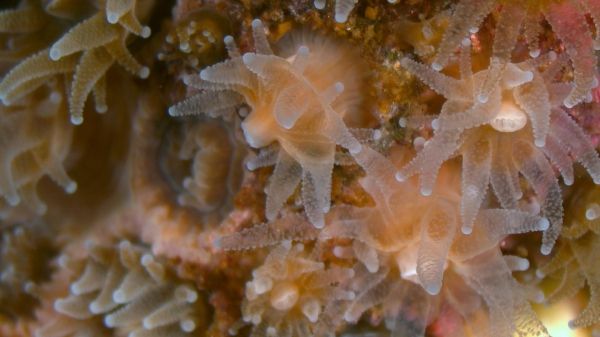As the Rhode Island legislature considers designating the Northern Star Coral an official state emblem, researchers are finding that studying this local creature’s recovery from a laboratory-induced stressor could help better understand how to protect endangered tropical corals.
A new study published today in mSystems, a journal of the American Society for Microbiology, investigates antibiotic-induced disturbance of the coral (Astrangia poculata) and shows that antibiotic exposure significantly altered the composition of the coral’s mucus bacterial microbiome, but that all the treated corals recovered in two weeks in ambient seawater.
The stony Northern Star Coral naturally occurs off the coast of Rhode Island and other New England states in brown colonies with high (symbiotic) densities and in white colonies with low (aposymbiotic) densities of a symbiotic dinoflagellate alga. The study found that those corals with algal symbionts – organisms that are embedded within the coral’s tissue and are required by tropical corals to survive – recovered their mucus microbiomes more consistently and more quickly.
Read more at: Woods Hole Oceanographic Institution
Close-up of a Northern Star Coral (Astrangia poculata) colony taken from a microscope in the laboratory at Roger Williams University, Rhode Island. (Photo Credit: Alicia Schickle)


